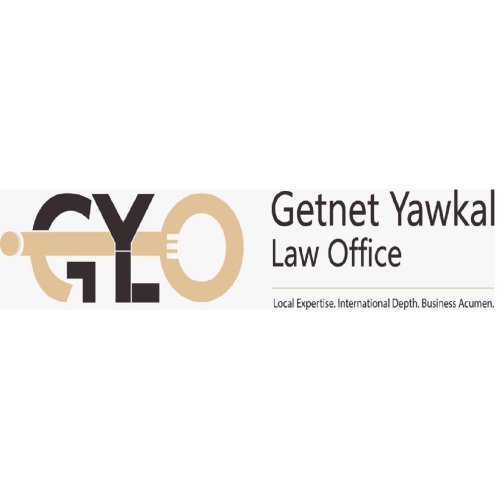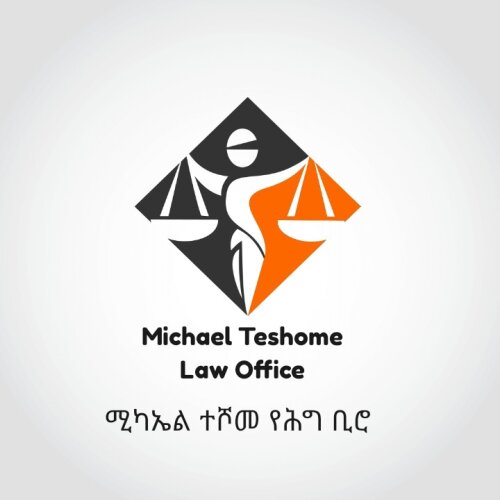Best Hiring & Firing Lawyers in Addis Ababa
Share your needs with us, get contacted by law firms.
Free. Takes 2 min.
List of the best lawyers in Addis Ababa, Ethiopia
About Hiring & Firing Law in Addis Ababa, Ethiopia
Employment law in Addis Ababa, Ethiopia, revolves around the country's Labour Proclamation. This framework seeks to ensure fair labor practices and clear guidelines in employment relationships. Hiring processes are expected to be non-discriminatory and transparent, while termination of employment should be conducted with just cause and due process. Employers must comply with rules regarding contracts, notice periods, severance pay, and reasons for termination to prevent disputes and uphold employees' rights.
Why You May Need a Lawyer
There are several situations where individuals or businesses may require legal assistance in the domain of hiring and firing. These include:
- Understanding and drafting employment contracts to ensure compliance with local laws.
- Navigating disputes related to wrongful termination or discriminatory hiring practices.
- Addressing grievances and resolving conflicts through mediation or litigation.
- Understanding employee rights and employer responsibilities under Ethiopian labor laws.
- Implementing layoffs or mass terminations in compliance with legal requirements.
- Handling issues related to severance payments and final settlements.
Local Laws Overview
The Labour Proclamation and other regulations dictate hiring and firing practices in Addis Ababa, focusing on creating a balanced relationship between employers and employees. Key aspects include:
- Employment Contracts: Must be in writing and clearly outline terms including job responsibilities, remuneration, and conditions.
- Termination of Employment: Must be conducted with valid reasons, and notice must be given according to the period stipulated by the law.
- Unlawful Dismissal: Employees can challenge dismissals believed to be unfair or discriminatory.
- Severance Pay: Employees dismissed without cause are generally entitled to severance payments, whose amounts depend on the tenure and reasons for termination.
- Dispute Resolution: Labor disputes can be addressed via arbitration, courts, or through labor offices.
Frequently Asked Questions
What constitutes unfair dismissal in Addis Ababa, Ethiopia?
Unfair dismissal includes termination without a valid reason or without following the proper procedure as defined by law. It may also involve discrimination based on gender, age, ethnicity, religion, or disability.
Do employment contracts need to be in writing?
Yes, employment contracts should be in writing to ensure clarity and protect both parties' rights by clearly outlining terms and conditions.
How much notice is required for termination?
The notice period depends on the employment contract but typically ranges from one month upward depending on the tenure of service, as per legal requirements.
Are employees entitled to severance pay?
Yes, employees dismissed without just cause are generally entitled to severance pay, the calculation of which is based on length of service and specific circumstances surrounding the dismissal.
What are the core rights of employees in Ethiopia?
Employees have the right to fair treatment, non-discrimination, safe working conditions, timely payment of wages, and the ability to seek redress in case of unfair labor practices.
What should I do if I believe I have been dismissed unfairly?
Consulting with a labor lawyer is crucial as they can guide you on filing a complaint with the relevant labor office or pursuing the case in court.
Are there specific laws against discrimination during hiring?
Yes, Ethiopian labor laws prohibit discrimination based on race, religion, sex, age, disability, and other personal characteristics during the hiring process.
How are labor disputes generally resolved?
Labor disputes can be resolved through arbitration, mediation, or by taking the matter to labor courts if necessary. The aim is to reach an amicable solution efficiently.
Can an employer lay-off workers without a reason?
No, layoffs should be justified and conducted in accordance with legal guidelines, with adequate notice and potential severance pay where applicable.
Is it legal to terminate an employee who has filed a complaint against the employer?
No, terminating an employee for filing a complaint against the employer is considered retaliatory and illegal under Ethiopian labor laws.
Additional Resources
For further assistance and to ensure compliance with the law, consider reaching out to the following resources:
- Ministry of Labour and Social Affairs: Provides regulations and resources for employment practices.
- Ethiopian Employers Federation: Offers guidance and support for businesses on employment law.
- Legal Aid Clinics: Some universities and non-profits provide free legal advice and assistance for employment-related matters.
- Workers' Unions: Can offer advice and representation for employees facing issues at work.
Next Steps
If you find yourself needing legal assistance in the field of hiring and firing in Addis Ababa, consider the following steps:
- Gather all relevant documentation such as contracts, termination notices, and communications with the employer.
- Seek a consultation with a qualified labor lawyer who specializes in Ethiopian employment law.
- Consider approaching the Ministry of Labour and Social Affairs for guidance and support on legal requirements and processes.
- Be prepared to discuss your case in detail and explore available options for resolution, including mediation or legal action.
Lawzana helps you find the best lawyers and law firms in Addis Ababa through a curated and pre-screened list of qualified legal professionals. Our platform offers rankings and detailed profiles of attorneys and law firms, allowing you to compare based on practice areas, including Hiring & Firing, experience, and client feedback.
Each profile includes a description of the firm's areas of practice, client reviews, team members and partners, year of establishment, spoken languages, office locations, contact information, social media presence, and any published articles or resources. Most firms on our platform speak English and are experienced in both local and international legal matters.
Get a quote from top-rated law firms in Addis Ababa, Ethiopia — quickly, securely, and without unnecessary hassle.
Disclaimer:
The information provided on this page is for general informational purposes only and does not constitute legal advice. While we strive to ensure the accuracy and relevance of the content, legal information may change over time, and interpretations of the law can vary. You should always consult with a qualified legal professional for advice specific to your situation.
We disclaim all liability for actions taken or not taken based on the content of this page. If you believe any information is incorrect or outdated, please contact us, and we will review and update it where appropriate.

















